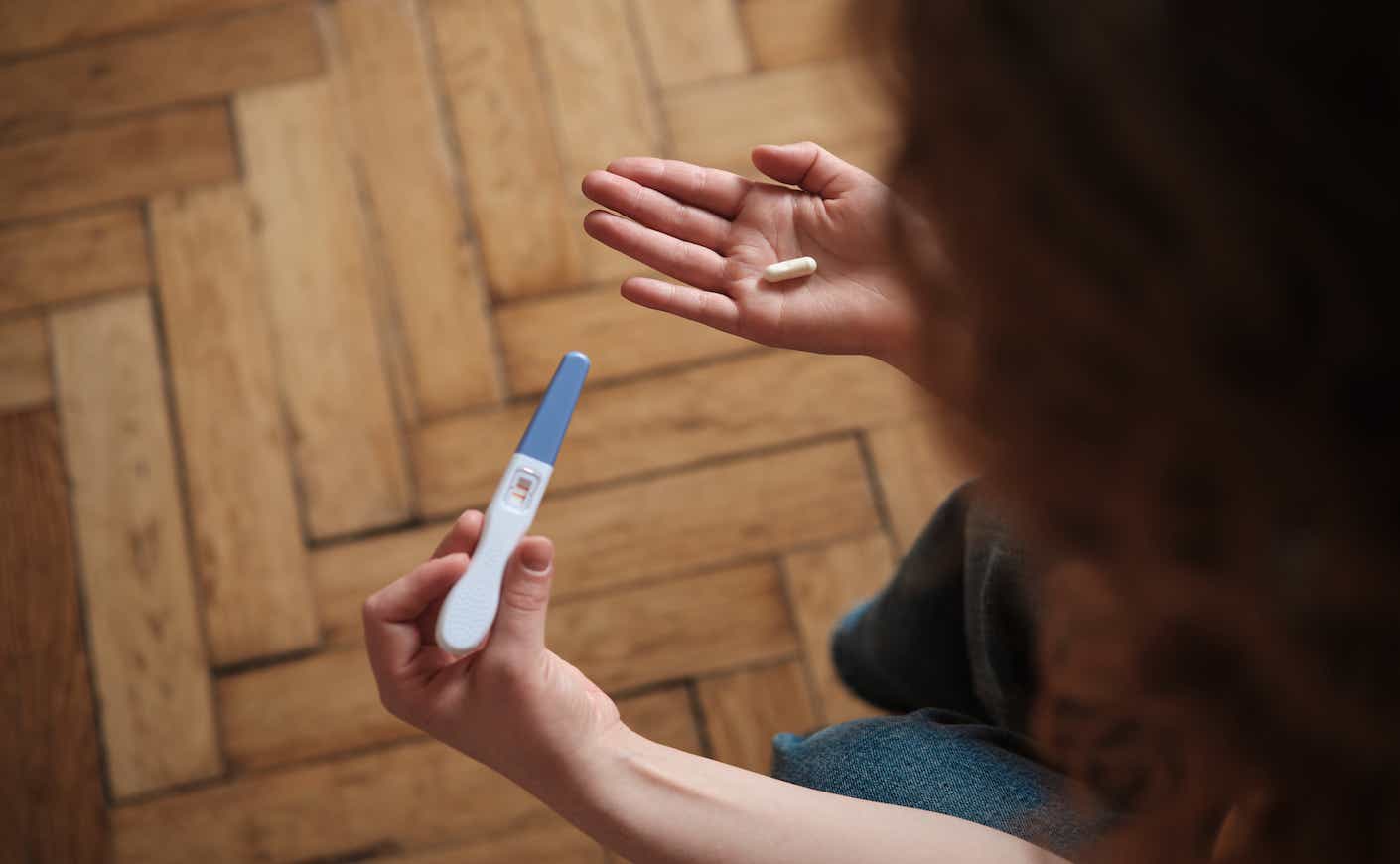As a physician, I've witnessed countless concerning trends in women's health, but what I encountered in my exam room recently stopped me in my tracks. A patient confidently told me her emergency contraception plan if needed in the future: She intended to take the Plan B pill found inside her pregnancy test package. I had to inform her that there is no Plan B pill inside pregnancy tests. Taking what many are mistaking as a pill to prevent pregnancy is a dangerous misconception that isn't isolated — it's trending in conversations among people of all ages and spreading rapidly across social media platforms and online forums.
Many pregnancy tests have a round desiccant “pill” in the back of the test that you have to break open the test wand to see. The capsule regulates moisture for the pregnancy test like a desiccant pouch does for sneakers, a vitamin vial, or other items. This “pill” is being mistaken for Plan B through videos circulating online. This small tablet is often made of silica and has no efficacy for preventing pregnancy. Pregnancy test manufacturer ClearBlue even resorted to putting a disclaimer on their website to warn customers about the confusion: “We are aware of videos circulating about Clearblue® pregnancy tests and the tablet found inside. Clearblue® pregnancy tests do NOT contain Plan B. All our tests contain a small desiccant tablet, which is included to absorb moisture and should not be eaten.”
I've never imagined in my nearly 20 years working in healthcare that misinformation would become so prevalent and evolve into a bigger issue due to restrictions on accessing care. The anxiety surrounding what you are allowed to do for your health is palpable depending upon what state you live in versus what healthcare options you would like to have. It's in this climate of fear and uncertainty that dangerous myths spread — like the misconception that the moisture-absorbing substance in pregnancy test packages is emergency contraception. The timeline confusion compounds the risk: Pregnancy tests only detect pregnancy weeks after the window when Plan B would actually be effective.
In my practice, I'm seeing firsthand how misinformation and restricted healthcare access are creating a perfect storm of confusion and fear. Women are stockpiling birth control, increasingly requesting long-term contraception like IUDs (the implantation of which can be a painful experience) or tubal libations (a surgical procedure), and desperately seeking information about their reproductive options. The anxiety for my female patients is palpable.
This confusion about pregnancy test components is particularly alarming because real emergency contraception — Plan B and its equivalents — is currently available over the counter (for now). The pharmacist at the local pharmacy is a great resource to answer your questions about these reproductive health options. These FDA-approved medications can effectively prevent pregnancy when taken within three days of unprotected sex.
The healthcare system has systemically neglected women's health for decades. Medical research and clinical trials have historically excluded or underrepresented women, leading to treatments and protocols designed primarily around male physiology. This research gap, combined with ongoing political battles over reproductive rights, has left many women seeking solutions — even potentially dangerous ones — out of desperation.
The consequences of this systemic neglect are now reaching a critical point. Clear health communication and reliable access to care should be available to everyone. Throughout my career, I've watched women's healthcare become increasingly politicized. And sales for emergency contraception surged after the election. At Winx Health — a major direct-to-consumer women's healthcare company — morning-after pill sales surged 966 percent in the three days after the election compared to the three before it. This rush to stockpile emergency contraception reveals a deeper fear: Women are preparing for a future where their healthcare choices may be even more limited.
If you're worried about future access to reproductive care, talk to your healthcare provider about your options for long-term contraception and backup plans, and ensure you have accurate information about your choices. Also, visit your local pharmacy, as emergency contraception is available without a prescription.
For some, desiccant tablet ingestion may seem surprising to hear about in the grand scheme of reproductive healthcare challenges. To me, it represents everything we must fight against: misinformation, restricted access, and the desperate measures women feel forced to consider when they believe they have no other options.
Dr. Bayo Curry-Winchell is a nationally recognized health equity advocate and maternal health expert known for her powerful TED Talk "Do No Harm," which sheds light on the maternal health crisis. As a medical correspondent, public speaker, social media content creator, and the founder and CEO of Beyond Clinical Walls, she is a trailblazer committed to driving meaningful change in healthcare.









